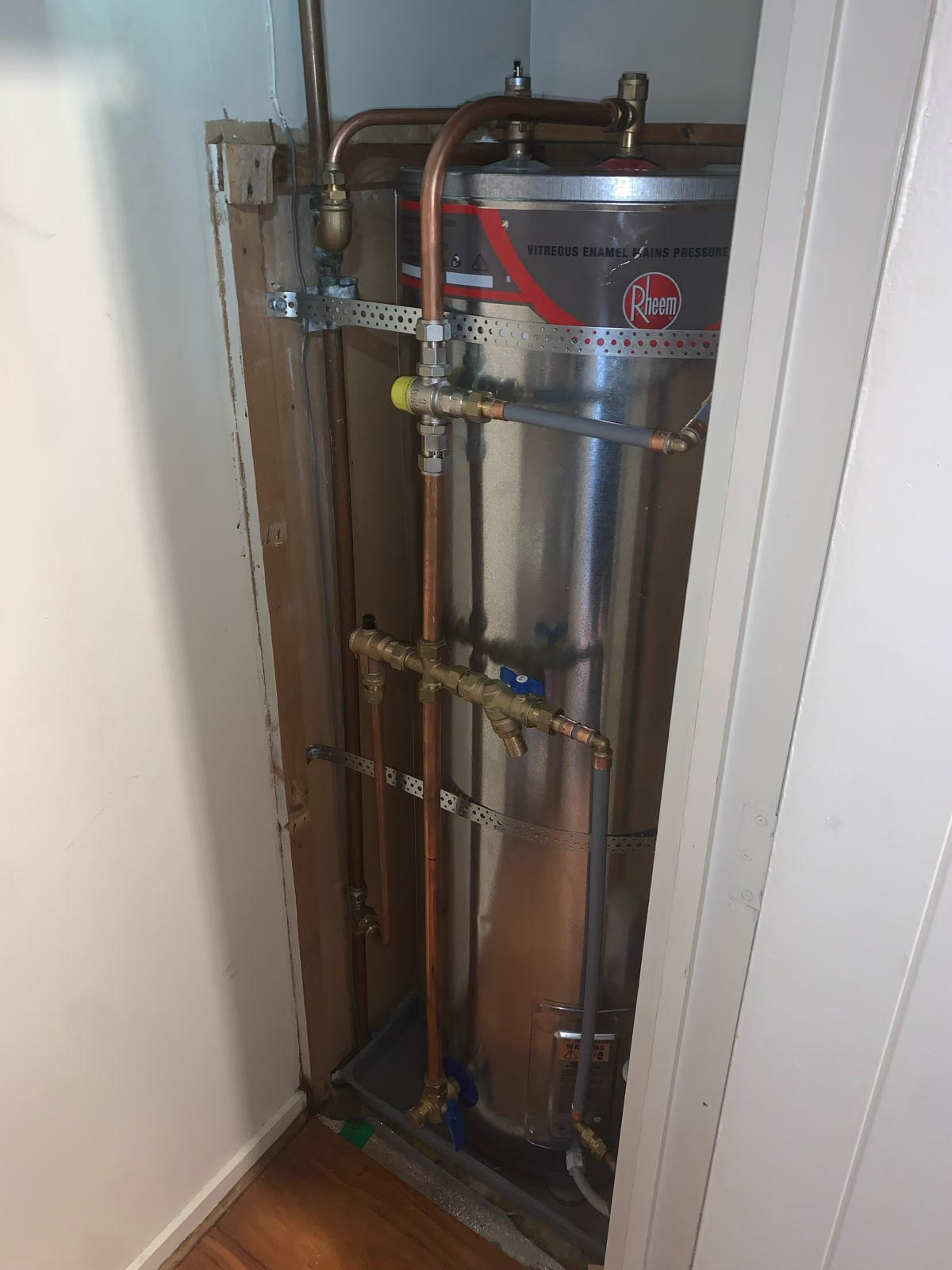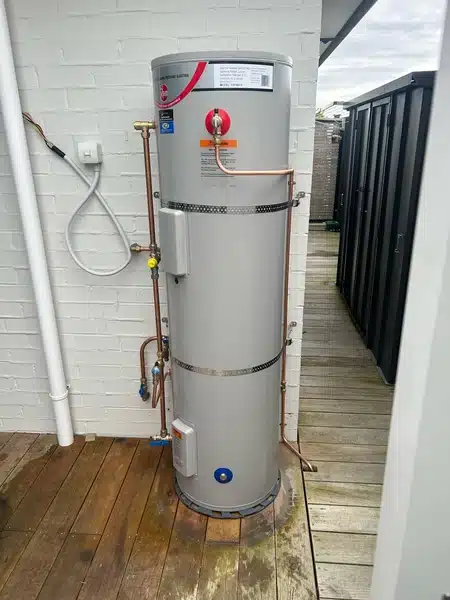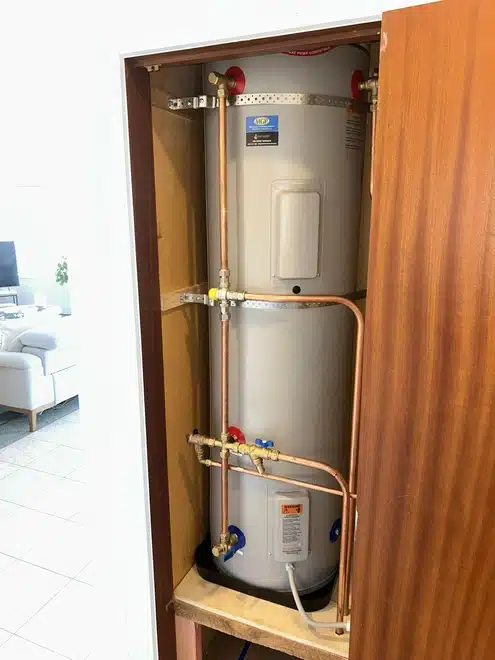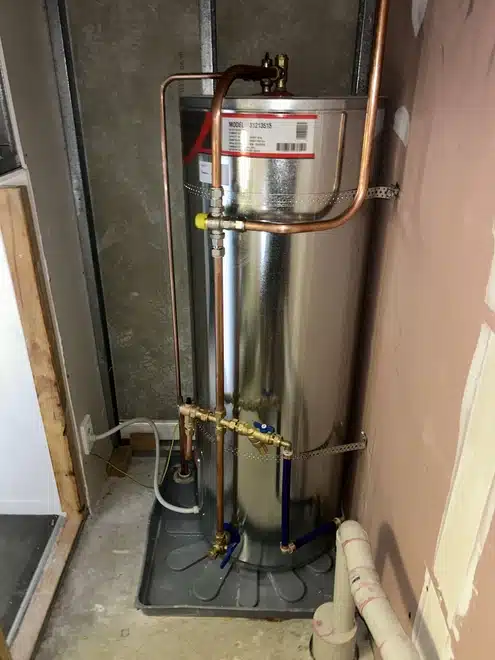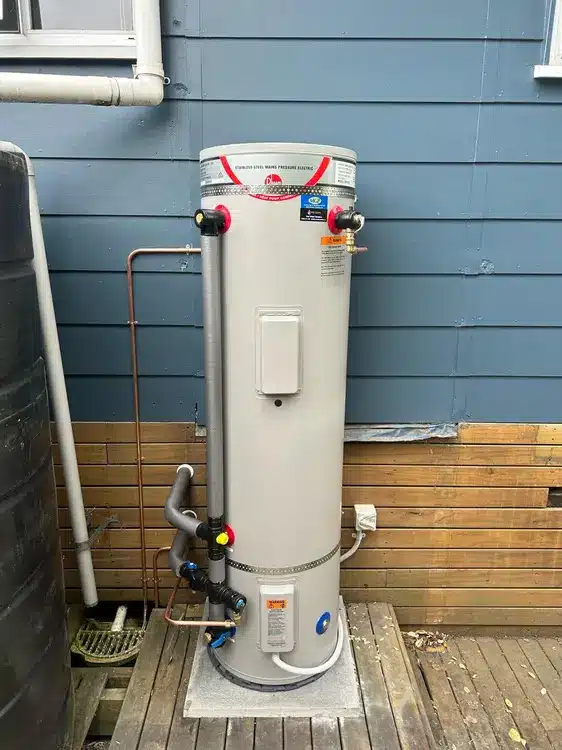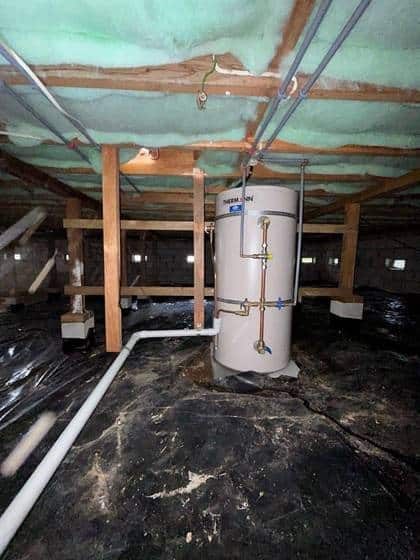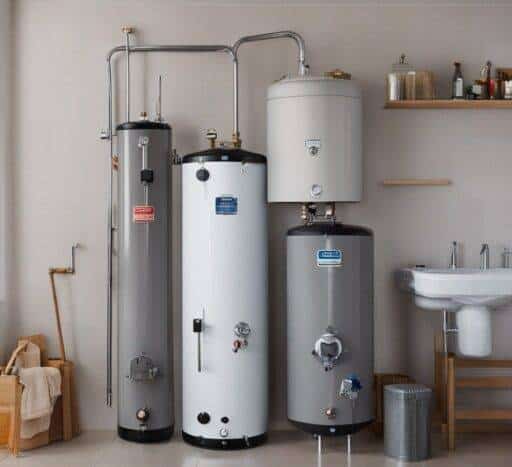Size Matters
The first consideration is having a hot water cylinder that is the right size for your household’s needs. One that is too small will run out of hot water too quickly. But a tank that is overly large wastes energy and takes up unnecessary space. As a general guideline:
2-3 people – 125 litre cylinder
3-4 people – 150+ litre cylinder
5+ people – 200+ litre cylinder
Consider peak usage times – if four family members all need to shower in the morning before work and school, a larger tank is wise. Also factor in high usage appliances like dishwashers and washing machines. Know when you tend to use the most hot water and size accordingly.
Insulate Properly
Insulating your hot water cylinder is one of the easiest and most effective ways to maximise efficiency. This helps minimise standby heat losses from the tank surfaces. All cylinders have some factory insulation, but adding an exterior jacket will provide further protection. Aim for a thickness of at least 50mm, up to 100mm for optimal savings. This insulation wrap can reduce standby losses by 25-45%.
You can install the insulation jacket yourself, available from plumbing supply stores. Make sure to carefully read the product instructions. For electric cylinders, avoid covering thermostats, access panels, or other openings. Leave the controls accessible according to manufacturer’s guidelines and building codes.
Set the Right Temperature
Most residential hot water cylinders allow you to adjust the thermostat that controls water temperature. Setting it too high causes excess heat loss and energy waste. But if it is set too low, you risk running out of hot water sooner and being uncomfortable washing and bathing.
The ideal set point is typically between 60-66°C. Higher increases risk of scalding. Any lower uses more energy to reheat smaller amounts of hot water. Adjust in small increments and find the lowest comfortable setting for your household. This balances safety and efficiency.
Consider Pipe Layouts
The layout of hot water pipes from your cylinder to tap points impacts efficiency. Long lengths of pipe from a distant cylinder allow sizeable heat losses before water reaches your shower or faucet. Circulating loops connected to the cylinder transport hot water around the home, keeping it available more quickly. But this itself uses extra energy, even when not actively being used.
Carefully consider the cylinder location if installing new plumbing or renovating. Place it as close as practical to concentrated areas of hot water demand like bathrooms or kitchen. Insulate all hot water pipes to reduce standing losses. Only install circulating loops if the energy trade-off makes sense for your usage patterns.
Use Timer and Booster Heating
Maximise savings with an intelligent timer control on your hot water cylinder heating. Instead of maintaining full temperature 24/7, program it to only reheat during common high demand periods. For example, two hours in the morning as your household starts its day and prepares for work and school. Then again in the evening when everyone returns home.
Let it drop to a lower temperate setting overnight and midday when hot water needs are lower. Pair this with booster heating elements that quickly restore full heat before peak times. Using a timer and booster is up to 15% more efficient than keeping a full constant temperature.
Consider Heat Pump Water Heating
One upgrade to consider is a heat pump hot water cylinder. This uses much less power than a conventional electric resistance unit. It extracts ambient warmth from surrounding air and transfers it into the water tank. Models sized for average households use about 1/3 the energy of comparable electric cylinders. This comes at a higher upfront cost but pays back over 3-5 years from energy savings.
Heat pump cylinders work best in spaces that do not drop below 7°C like garages or utility rooms. Make sure any enclosure has good ventilation and airflow around the unit. Check if any subsidies, rebates or incentives are available in your area to offset purchase and installation costs. Consider coordinating install when replacing an ageing existing cylinder.
Prevent Scale Buildup
Hard water rich in minerals like calcium and magnesium leads to scale accumulation in hot water cylinders over time. This chalky limescale coating acts as an insulator that makes heating less efficient. Removing and preventing scale helps your cylinder work as intended.
Use water softening to treat hard water entering your home plumbing. Regularly flush the hot water cylinder by running the hot tap for 5-10 minutes monthly. Letting the water flow at full force helps wash away loose sediment inside. Schedule a professional de-scaling every 1-2 years to fully clean the tank interior walls. Consider installing scale-inhibitor piping products that use magnetism to reduce mineral deposits.
Extend Cylinder Lifespan
Carry out regular hot water cylinder maintenance to maximise its working life expectancy. This lets you delay the substantial cost of complete replacement. Check valves and fittings annually for any leaks and repair promptly. Inspect electric heating elements every 2-3 years and replace them if worn. Test thermostats, anodes and sensors and update if faulty. With proper care, a cylinder may last 10-15 years.
Final Words
Getting the most efficiency and use from your domestic hot water cylinder comes down to proper sizing, insulation, settings, system layouts and preventative maintenance. Apply these best practices to enjoy reliable hot water delivery with optimal savings. Reach out to a plumbing professional for guidance choosing cylinders and accessories suited for your household. Make the most of this important water heating appliance.
Use our contact us page to reach us and we will be more than happy to discuss your hot water situation. Or give us a call on 0800 497658.
At Hot Water Solutions all we do is hot water!

